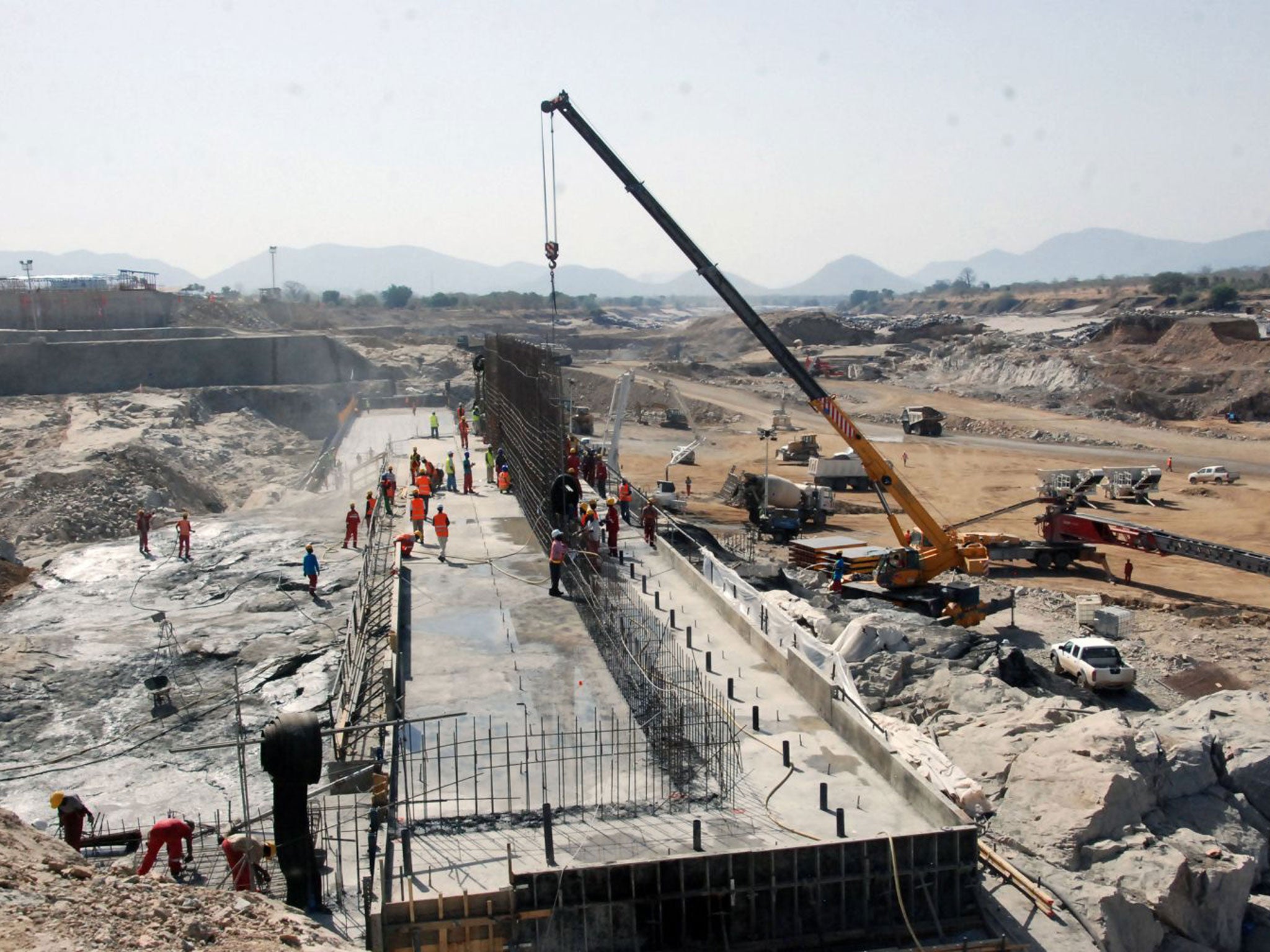Ethiopia diverts Nile to build mega-dam
Hydroelectric project creating water anxiety in Egypt; reporter covering farm evictions arrested

Ethiopia has begun diverting the flow of the River Nile as part of its controversial scheme to build Africa’s largest hydroelectric dam.
Construction of the Grand Renaissance Dam has already caused significant concern in Egypt, which is downstream of Ethiopia and totally dependent on the Nile for water.
Yesterday, the Horn of Africa state arrested a journalist for an Ethiopian newspaper who had met farmers evicted from near the site of the dam, which is the continent’s biggest engineering project.
Muluken Tesfahun was detained after attempting to interview some of the hundreds of evicted farmers, according to the New York-based Committee to Protect Journalists (CPJ). It was the second arrest of a reporter in connection with the dam. The CPJ’s Mohamed Keita accused the Ethiopian government of “criminalising independent journalists”.
The Grand Renaissance, located in the Benishangul-Gumuz region, 25 miles (40km) from the border with Sudan, is the centrepiece of a $12bn (£8bn) string of dams with which Ethiopia aims to turn itself into the region’s main energy exporter.
Engineers began to divert the flow of the river on Tuesday in order to lower water levels and advance construction, which is due to be completed in 2015.
The current diversion is not expected to affect river flows but concerns remain over the longer-term impact of the dam. “This now enables us to carry out civil engineering work without difficulties,” said Mihret Debebe, chief executive officer of the state-run Ethiopian Electric Power Corporation. “The aim is to divert the river by a few metres and then allow it to flow on its natural course.”
Some scientists working in Egypt, Sudan and Italy have warned that the dam could be a “catastrophe” for downstream countries, and reduce the flow by up to a fifth while it is being filled. The project has been mired in controversy since it was announced in 2011, with no independent environmental impact study yet released. The contract for construction was awarded without competitive bidding to the Italian company Salini Construttori. Large international lenders such as the World Bank opted out of financing the project, with concerns over transparency. They were also accused of succumbing to Egyptian pressure to shun the dam which is planned to generate 6,000 megawatts.
Ethiopia claims that it is financing the dam from government funds, and has launched a bond with a return of 5 per cent. However, it has been accused of coercing public sector workers into buying the bonds. Once synonymous with famine, the Ethiopian state has overseen rapid economic growth and deep poverty reduction in the last decade, but has been criticised for doing so at the expense of democratic rights.
Two treaties signed more than 50 years ago gave Egypt the lion’s share of the water from the Nile. But those deals, so crucial to one country, set up an imbalance of resources that has led analysts to look to this river system as the likely theatre for the first of the long-heralded water wars.
When five of the 10 Nile basin countries signed up to a modern-day agreement that would give them a greater share of the waters, it was greeted in the Egyptian press as a “death sentence”.
The White Nile rises in East Africa in Lake Victoria and drains through Uganda into Sudan where it meets in Khartoum, with the Blue Nile flowing from Ethiopia’s Lake Tana. Historically Egypt has threatened to go to war over the Nile but that is highly unlikely now. Egypt’s ambassador to Ethiopia, Mohamed Idrees, said his country must treat the dam as a “reality” as it has become a “national project” for the upstream nation.
Join our commenting forum
Join thought-provoking conversations, follow other Independent readers and see their replies
Comments
Bookmark popover
Removed from bookmarks